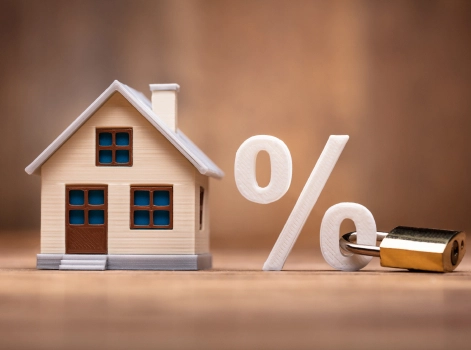Updated: 26 Jul, 2024
You may have heard your bank advertise its so-called bank standard variable rate (SVR) but what is it exactly?
Well, it’s the variable rate that fluctuates depending on cash rate changes made by the Reserve Bank of Australia (RBA) but the real question is whether you can rely on this rate when comparing lenders.
How do banks come up with their standard variable rate?
Lenders set their standard variable rate themselves. It’s partly influenced by changes in the cash rate but banks have their own reasons for setting their standard variable rates.
For instance, the RBA reduced the cash rate to 2.00% in May 2015 which means that banks should have been reducing their standard variable rates by the same amount.
The problem is that lenders rarely pass on the rate cut in full. There are reasons for this relating to their cost of funds position, which you can read more about on the Why Don’t Banks Pass On The Full Rate Cut? blog post.
What’s the problem with the standard variable rate?
The main problem when banks say they’ll give you a discount off their standard variable rate or when a non-bank offers a rate that’s below another bank’s SVR is that it creates ambiguity.
The reason is that you’re comparing apples with oranges because every bank has their own SVR. So when you see two lenders offering 1% discount off their SVR, you may think you’re ending up with the same interest rate, but you’re not.
Therefore, this may not be the best way to compare lenders. You have to shop around to find and look at the home loan package as a whole to find out whether you’re getting the most value based on your needs.
With a good mortgage broker to help you, banks are always open to a negotiation because of the relationship they have with the broker.
The other thing with relying on the standard variable rate alone is that it doesn’t reflect the additional charges that you have to cover when buying a home, including stamp duty and fees charged by the banks such as switch fees, extra valuation fees or loan split fees.
Luckily, these fees can be waived if you choose to go for a professional loan package. You can also receive a direct interest rate discount of up to 1.10% on the standard variable rate.
What are the features in a standard variable rate home loan?
Almost all lenders offer some features in a standard variable rate home loan which can help you pay off your loan faster and reduce your overall interest costs.
These features include:
- Unlimited extra repayments:
You can make additional repayments on top of your minimum monthly repayments.
For example, if you need to make a minimum monthly repayment of $2,500 but you get a raise and you can afford $3,000 a month, then you can make an additional $500 repayment every month.
This way you can pay off your loan faster and also save on interest repayments.
- Redraw:
This facility allows you to withdraw the additional repayments that you’ve made on the loan.
If you’re in a tight situation, like you need to buy a car urgently because your old one broke down, then this feature can come in real handy.
Some banks allow you to withdraw any amount of additional repayments that you’ve made without charging you. Other lenders set a fixed amount, say $10,000, as the maximum limit that you can withdraw at once and charge you if you want to withdraw more.
- 100% offset account:
This is a savings account which offsets the interest on your home loan.
For example, if you had a $600,000 home loan and you had $50,000 in your offset account then you would only pay interest on $550,000.
This is beneficial because the interest you pay on the home loan is typically greater than the interest you save on a savings account.
Is an SVR home loan right for you?
A standard variable rate home loan may be suitable for you if you:
- Can make use of the extra features.
- Can afford the repayments even if the interest rates increase.
- Plan on refinancing your home loan.
- Plan on changing lenders or loan products when you find a better offer.
You can always go for a basic variable rate if you’re borrowing less than $250,000, don’t plan on using any extra features or changing banks.
If you want to secure your mortgage repayments to give you financial security for a specified time, you can choose to go for a fixed rate home loan. Most borrowers choose 3 year and 5 year fixed rate loans.
Can’t decide what to do?
Call us on 1300 889 743 or fill in our free assessment form and one of our specialist brokers can compare home loans for you based on more than just the bank standard variable rate.









